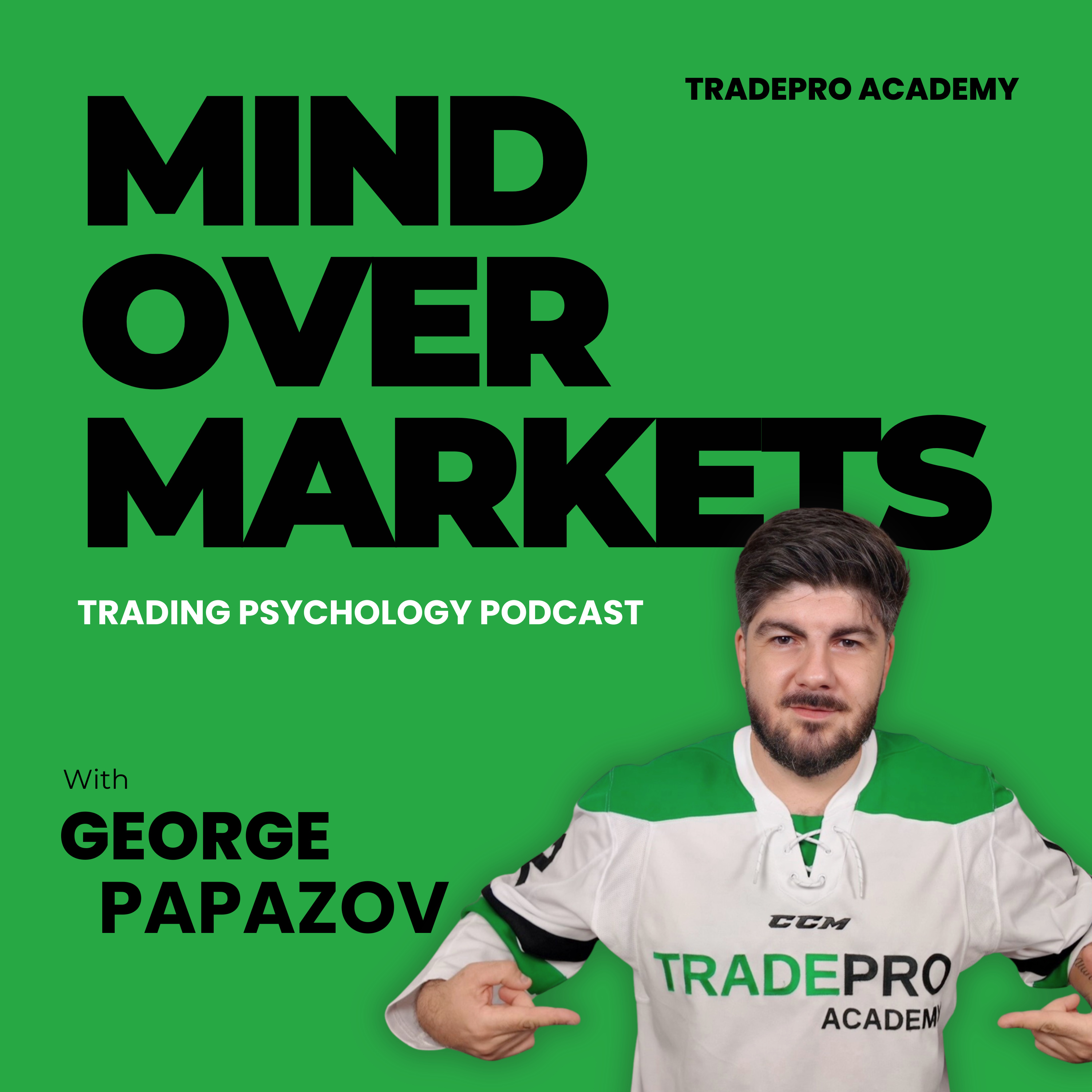

Mind Over Markets: Trading Psychology Podcast
George Papazov
Mind Over Markets is the trading psychology podcast for serious traders ready to master the real edge — their mind. Hosted by George Papazov, founder of TRADEPRO Academy, this show helps you break emotional loops, regulate impulses, and build a confident trader identity. Learn how to rewire your mindset using NLP, coaching, and performance psychology. Ready to go deeper? Unlock the full ASCEND psychology program inside TRADEPRO Academy.
Episodes
Mentioned books

Jan 6, 2022 • 1h 24min
Order Flow Trading: DOM Foundations
Want to learn how to find out what traders are doing? This is called following the smart money, and order flow is a key analysis tool to help you gain an edge on the market. In today’s episode Leo and I discuss our trading into the end of the year, and openly share some of […]

Dec 16, 2021 • 38min
How to Create and Test a New Trading Strategy
A trading strategy is critical to your success, but do you know the process to create one? Every day we hear someone telling us that WE NEED a trading strategy. So much emphasis is put on this topic, that new traders rush the process and are doomed from the beginning. In today’s episode, we really […]

Dec 9, 2021 • 41min
10 Tips to Build and Sustain Peak Performance in Your Trading
Today we talk about the art of building and sustaining performance like a top athlete. I discuss 10 TIPS to get you to step into the mindset of a top performer. Think of the greatest things in life you have ever accomplished so far? What are you most proud of? Was it easy to get? […]

Dec 2, 2021 • 59min
Order Flow Trading: Foundations of Time and Sales
In this episode Leo and myself talk about the most foundational concept of order flow trading in futures – the time and sales. This is also called “reading the tape”. This is a brand new segment we will be co-hosting and airing together the first Thursday of every month, where we will discuss a new […]

Nov 25, 2021 • 41min
Generating New Streams of Income for your Trading Profits
In today’s episode I’ll be talking about an exciting topic – what happens when you start making money in the markets? What ways can you generate income streams outside of trading with your profits? We’ll dive into principles of income generation, active and passive source ideas, and I reveal all my income streams on this […]

Nov 18, 2021 • 31min
Hotkey Trading Tips, Tricks and Hacks
Day trading with hotkeys is an amazing way to increase your speed advantage and to get a better handle on your execution. I personally don’t day trade without them anymore. However, hotkeys are often used the wrong way and at the wrong time of a trader’s development journey. In this episode, I cover these topics […]

Nov 11, 2021 • 33min
Fixing Account Blowouts after Weeks of Success
Do you blow out accounts in one day after days, weeks or even months of success? This is a very common problem for the new trader. I know, because I have been there, and certainly done that. The good news is, that it is fixable, if you are daring to get to the actual ROOT […]

Nov 4, 2021 • 37min
Small Account Challenge to Improve Your Trading
In today’s episode, I talk about taking a small account challenge to get my discipline and confidence back as a trader. I will also share with you some signs it might be time for you to take a new account challenge, and finish off with some tips for growing small accounts. No matter what […]

Oct 28, 2021 • 33min
Escaping the Victim Mentality Trap in Trading
In today’s episode, I’ll be talking about the victim mindset and how it silently but very quickly and effectively decimates trading accounts. I will walk you through 6 signs you may be in a victim mindset, plus ONE, and ONLY ONE simple thing you NEED to DO NOW to get out of this mindset and […]

Oct 21, 2021 • 1h 47min
The 100 min Roast of George and Victorio
We made it to episode 100! Today we have two episodes into one, where Victorio and myself take turns asking each other 10 trading questions, and 10 funny questions designed to embarrass one another and share a good laugh. I want to thank you for listening, and for helping make the podcast a success. Without […]


